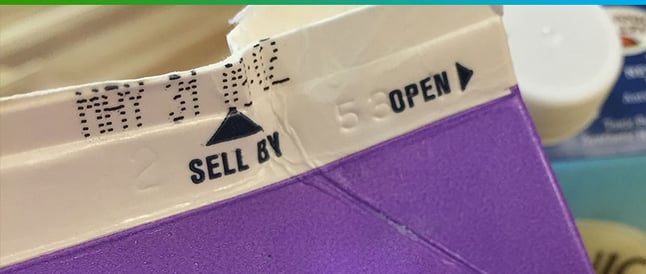
One of the drivers of food waste that we often highlight in LeanPath educational sessions is confusion around date labels. This can sometimes be the case in foodservice—where employees may be required to throw out products in bulk once they have reached a certain date—and often at home, where many consumers don't think twice about pouring a gallon of still-good milk down the drain if they see a date on it that has passed.
In reality, though, that gallon of milk is almost always still good well beyond the dates printed on it. That's why Dana Gunders, staff scientist at the NRDC and expert presenter for our June 8 webinar, recommends the "sniff test" and using judgment and common sense rather than a largely ambiguous date to dictate what foods you toss and what foods you eat.
There are two primary types of dates found on the foods we buy: a "best by" date and a "sell by" date. Neither of these mean that the food is not edible after those dates. And neither of those dates are regulated—it is completely at the discretion of the manufacturer to decide what dates should be printed on the labels we're relying on.
But if you're following food waste news, you've likely seen that policy change is under consideration. Last week, Sen. Richard Blumenthal, D-Conn., and Rep. Chellie Pingree, D-Maine, proposed federal legislation that would standardize these dates, under the Food Date Labeling Act. The bill was introduced to the senate on May 24 and aims to fix the "jumble of arbitrary food date labels that are not based on safety or science," Blumenthal comments in the press release.
Whether or not the bill will become a law remains to be seen, but the fact that this issue is getting more attention should help with one of the major issues at hand: lack of awareness. The more educated we are as consumers and foodservice workers, the less food that will unnecessarily go to waste. And while standardizing date labels isn't the only, or the most impactful, solution to the food waste problem, it's certainly a very important and logical step down the path to a world with less wasted food.
If you haven't watched the 5-minute film EXPIRED, a collaborative production by the Harvard Food Law and Policy Clinic and Racing Horse Productions, I highly encourage you to watch it and consider sharing it with your teams. It helps to shine a vivid light on this confounding issue.
